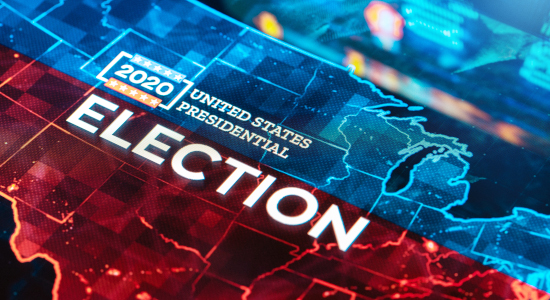
Dec. 3, 2020 –The Wisconsin Supreme Court today denied (4-3) an
original action petition challenging absentee ballot counts in Milwaukee and Dane counties, concluding the petitioner must file presidential election grievances in circuit court.
Chief Justice Patience Roggensack, Justice Annette Ziegler, and Justice Rebecca Bradley all dissented in
Trump v. Evers, filed just two days ago by President Donald J. Trump, Vice President Mike Pence, and Trump for President Inc.
Justice Brian Hagedorn joined with Justice Ann Walsh Bradley, Justice Rebecca Dallet, and Justice Jill Karofsky to form a majority, denying President Trump’s petition to bypass the lower courts in challenging Wisconsin’s election results.
The majority noted Wis. Stat. section
9.01(6), which allows recount determinations by boards of canvassers or the state election commission, may be filed in “circuit court.”
The petitioners noted that Joseph R. Biden won the Wisconsin presidential election by more than 20,000 votes, a tally largely unchanged after an official nine-day recount.
However, the petitioners argued that more than 170,000 absentee ballots were filed in Milwaukee and Dane counties and election officials in those counties issued an unspecified number of absentee ballots without receiving a required written applications.
The petition also alleged more than 5,500 Milwaukee and Dane county absentee ballots were cast with incomplete or incorrect information. For instance, petitioners alleged that election officials filled in missing witness information and they were improperly counted.
 Joe Forward, Saint Louis Univ. School of Law 2010, is a legal writer for the State Bar of Wisconsin, Madison. He can be reached by
email or by phone at (608) 250-6161.
Joe Forward, Saint Louis Univ. School of Law 2010, is a legal writer for the State Bar of Wisconsin, Madison. He can be reached by
email or by phone at (608) 250-6161.
Finally, the petition alleges that more than 28,000 absentee ballots were issued to individuals claiming “indefinitely confined” status without photo identification, and more than 17,000 ballots were delivered to 206 improper ballot stations in Madison.
But a majority declined to hear the case as an original action, noting Wisconsin statutory law – created by the legislature – requires the case to be filed in circuit court.
Wis. Stat. section 9.01 “provides that these actions should be filed in the circuit court, and spells out detailed procedures for ensuring their orderly and swift disposition,” wrote Justice Hagedorn in a concurring opinion. “Following this law is not disregarding our duty, as some of my colleagues suggest. It is following the law.”
Even if the court had constitutional authority to hear the case, Hagedorn noted, “the briefing reveals important factual disputes that are best managed by a circuit court.”
Dissenters
Chief Justice Roggensack wrote a dissenting opinion, joined by Justice Ziegler, concluding the state supreme court has constitutional authority to hear the case. She said the circuit court could make factual findings and report them to the supreme court.
“[B]y denying this petition, and requiring both the factual questions and legal questions be resolved first by a circuit court, four justices of this court are ignoring that there are significant time constraints that may preclude our deciding significant legal issues that cry out for resolution by the Wisconsin Supreme Court,” the chief justice wrote.
Justice R. Bradley wrote a separate dissent, joined by Chief Justice Roggensack and Justice Ziegler, also concluding the supreme court has constitutional authority to hear the case as an original action because elections are issues of statewide significance.
“The Wisconsin Supreme Court forsakes its duty to the people of Wisconsin in declining to decide whether election officials complied with Wisconsin's election laws in administering the November 3, 2020 election,” Justice R. Bradley wrote.
“Instead, a majority of this court passively permits the Wisconsin Elections Commission (WEC) to decree its own election rules, thereby overriding the will of the people as expressed in the election laws enacted by the people's elected representatives.”
